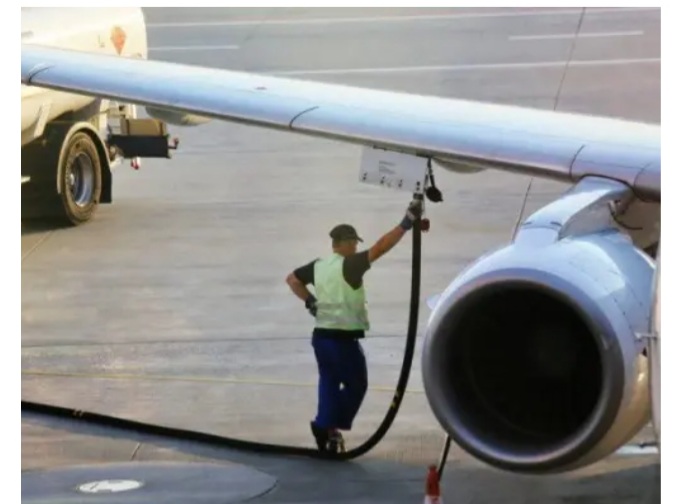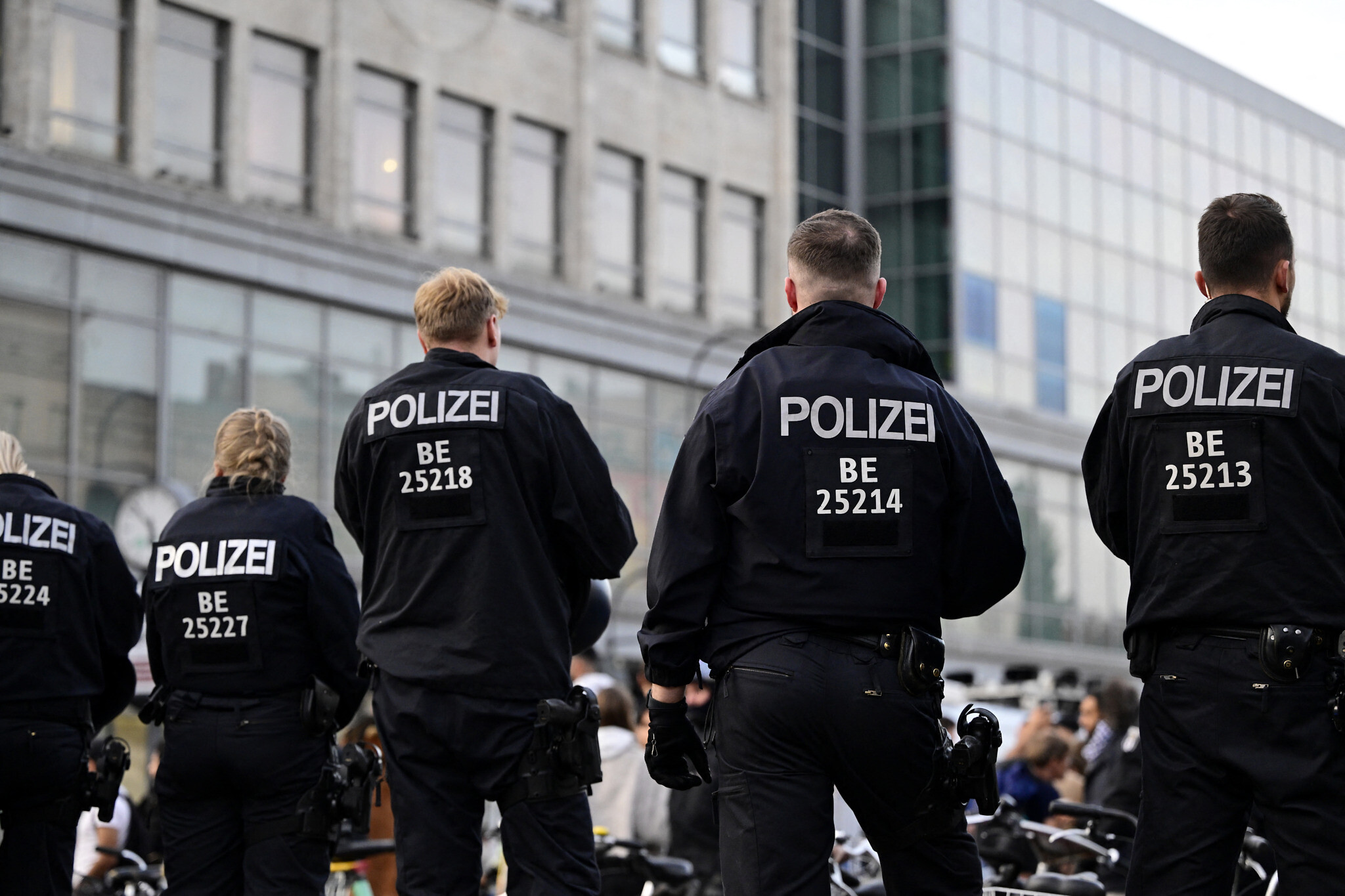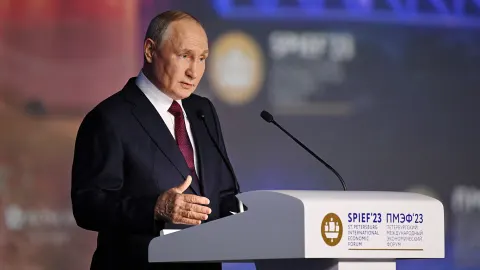Foreign
Indonesia Conducts First Commercial Flight Using Palm Oil-blended Jet Fuel

Indonesia conducts first commercial flight using palm oil-blended jet fuel
Indonesia on Friday flew its first commercial flight using palm oil-blended jet fuel, as the world’s biggest producer of the commodity pushes for wider use of biofuels to cut fuel imports.
Operated by flag carrier Garuda Indonesia, the Boeing 737-800NG aircraft carried more than 100 passengers from the capital Jakarta to Surakarta city about 550 kilometres (342 miles) away, Garuda Indonesia CEO Irfan Setiaputra said.
“We will discuss further with Pertamina, Energy Ministry and other parties to ensure this fuel is commercially reasonable,” Irfan said during a ceremony, adding the plane was set to return to Jakarta later on Friday.
Garuda conducted several tests including a flight test on the new fuel earlier this month and an engine ground test in August.
According to Reuters, the palm-oil blended jet fuel is produced by Indonesian state energy firm PT Pertamina (PERTM.UL) at its Cilacap refinery, using hydroprocessed esters and fatty acid (HEFA) technology and is made of refined bleached deodorized palm kernel oil.
Pertamina has said the palm-based fuel emits less atmosphere warming greenhouse gases compared with fossil fuels, and palm oil producing countries have called for the edible oil to be included in feedstock for the production of sustainable aviation fuel (SAF), Reuters reports.
“In 2021, Pertamina successfully produced 2.0 SAF in its Cilacap unit using co-processing technology and was made of refined bleached deodorized palm kernel oil with production capacity 1,350 kilolitres per day,” said Alfian Nasution, a director at Pertamina.
Meanwhile, Harris Yahya, a director at the Energy Ministry, said the use of biofuel would lower the greenhouse effect.
The aviation industry, a major emitter of greenhouse gases, is looking for ways to cut its carbon footprint by using alternative fuels.
Experts say the industry will need 450 billion litres of SAF a year by 2050, if the fuel is to account for around 65% of the mitigation needed to achieve net-zero targets.
Foreign
3 teens arrested in Germany for allegedly plotting terror attack

German authorities have arrested three teenagers aged 15 and 16 on suspicion of plotting a deadly Islamist terrorist attack in the western German state of North Rhine-Westphalia, prosecutors said on Friday.
The state’s Central Office for the Prosecution of Terrorism (ZenTer NRW) sought an arrest warrant for the teenagers over the Easter holiday.
They were suspected of plotting a terrorist attack in accordance with the aims and ideology of (extremist militia organisation) Islamic State.
The detained suspects are a 15-year-old girl from Dusseldorf, a 16-year-old girl from the Märkischer Kreis district and a 15-year-old boy from the Soest district, located about 100 kilometres to the east of Dusseldorf.
A fourth suspect has reportedly been identified in the south-western German state of Baden-Württemberg, and the local court there has issued an arrest warrant.
According to the investigators, the teenagers are accused of having agreed to commit murder and manslaughter.
This is in conjunction with the preparation of a serious act of violence endangering the state.
The presumption of innocence applied in all stages of the proceedings.
Security sources told newsmen that the young people had formed a chat group, but had not drawn up a concrete attack plan for a particular time and place.
However, sources said the cities of Dortmund, Dusseldorf and Cologne were discussed as targets, and attacks with knives and Molotov cocktails on people in churches or police officers in police stations had been considered.
The sources said authorities had also conducted searches as part of the investigation.
A machete and a dagger were seized in Dusseldorf, but no evidence of the construction of incendiary devices was discovered.
Sources said the father of the Dusseldorf suspect had already attracted attention from authorities in the past because he had allegedly collected donations for the Islamic State.
The investigators declined to reveal how the suspected terrorists were tracked down, but said that foreign intelligence agencies “did not play a role.”
Foreign
Putin Registers As Candidate For Russia’s Next Presidential Election

Russia on Monday officially recognised Vladimir Putin as a candidate for the presidential elections in March, a vote that he is all but certain to win.
The 71-year-old has led Russia since the turn of the century, winning four presidential ballots and briefly serving as prime minister in a system where opposition has become virtually non-existent.
The Central Election Commission said it had registered Putin, who nominated himself, as well as right-wing firebrand and Putin-loyalist Leonid Slutsky as candidates for the vote.
The election will be held over a three-day period from March 15 to 17, a move that Kremlin critics have argued makes guaranteeing transparency more difficult.
Following a controversial constitutional reform in 2020, Putin could stay in power until at least 2036.
Rights groups say that previous elections have been marred by irregularities and that independent observers are likely to be barred from monitoring the vote.
While Putin is not expected to face any real competition, liberal challenger Boris Nadezhdin has passed the threshold of signatures to be registered as a candidate.
However, it is still unclear if he will be allowed to run, and the Kremlin has said it does not consider him to be a serious rival.










